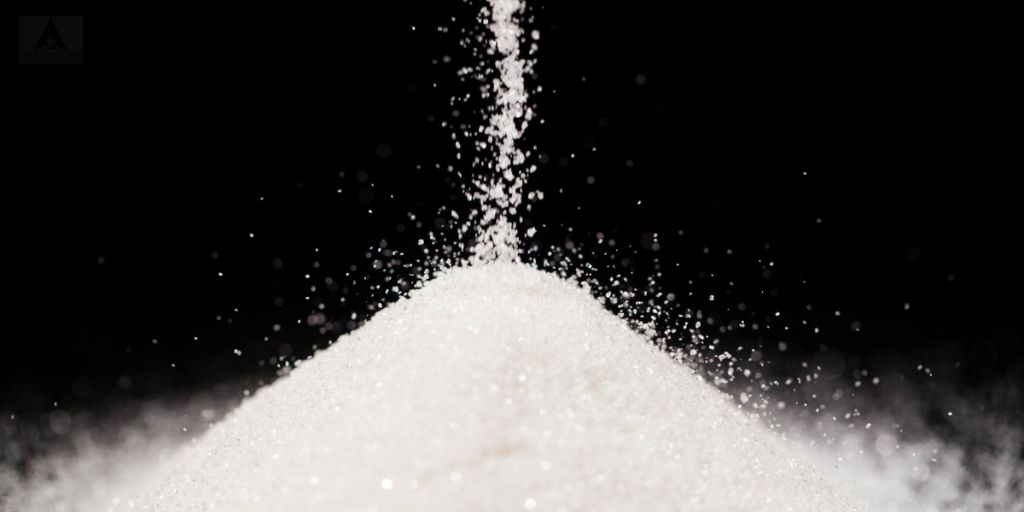Potassium Chloride: The Critical Role of KCl in Diverse Industries

We are among India’s top manufacturers, exporters, and suppliers of Potassium Chloride (KCl chemical). Chemically known as Potassium Chloride, it carries the CAS Number 7447-40-7 with the formula KCl. This versatile compound is widely used in applications such as dyes and fertilizers.
Potassium chloride (KCl) stands as a cornerstone in both industrial and agricultural domains, known for its extensive versatility and effectiveness.
This vital compound has become indispensable across various sectors due to its numerous applications.
In this blog post, we will delve into the significance of manufacturing potassium chloride, from its benefits in agriculture to its roles in health and chemical engineering.
Whether you’re involved in farming, concerned about your health, or work as a chemical engineer, this post will offer valuable insights.
Potassium Chloride Specifications, Features, and Uses
| Chemical Name | Potassium Chloride |
|---|---|
| Chemical Formula | KCl |
| CAS# | 7447-40-7 |
| Value Chain | Others (Inorganic) |
| End Use | Dyes, Fertilizers |
| Appearance | White Powder |
| Purity | 99% |
| Specifications | Features | Usages |
|---|---|---|
| Chemical Formula: KCl | High Potassium Content: Essential for plant growth and human health. | Agriculture: As a potassium-rich fertilizer to enhance soil health and crop yield. |
| Appearance: White crystalline solid | Low Sodium: Makes it an excellent substitute for table salt. | Food Industry: Used as a salt substitute and preservative. |
| Solubility: Highly soluble in water | Non-toxic: Safe for various applications when used appropriately. | Pharmaceuticals: Utilized in medicines for treating potassium deficiencies. |
| Molecular Weight: 74.55 g/mol | Chemical Industry: Involved in the production of potassium compounds. | |
| Purity: Typically 99% or higher | Water Treatment: Used in water softeners to reduce hardness. |
Understanding Potassium Chloride
Potassium chloride (KCl) is a naturally occurring chemical compound composed of potassium and chlorine. It is typically found in ancient seabeds and is mined from potash deposits.
This compound plays a crucial role in the growth and health of both plants and humans, making it an essential resource across many industries.
Natural Occurrence and Extraction
KCl is abundantly available in mineral deposits worldwide and is extracted primarily through mining and brine evaporation techniques.
The most significant deposits are located in countries such as Canada, Russia, and India. The extraction process involves isolating potassium from other minerals, making KCl accessible for various applications.
Importance Across Industries
Potassium chloride’s unique properties make it a critical resource in agriculture, healthcare, and chemical engineering.
Its ability to promote plant growth, improve soil health, and serve as a dietary supplement highlights its versatility and importance.
Agricultural Applications of Potassium Chloride
One of the primary uses of KCl is in agriculture, where it is a crucial nutrient for improving crop yield and soil fertility. Farmers depend on potassium chloride to supply the essential potassium needed for healthy plant development.
Enhancing Soil Health
KCl is often applied to soil to restore potassium levels, which are vital for several physiological processes in plants, including photosynthesis and nutrient uptake.
While potassium doesn’t contribute directly to the structure of the plant, it is essential for the plant’s overall functioning.
Promoting Plant Growth
Potassium chloride significantly enhances plant health by promoting root development and increasing resistance to diseases.
It is particularly beneficial for crops like corn, wheat, and soybeans. Studies indicate that potassium fertilization can improve crop yields by up to 20%.
Comparing with Other Potassium Fertilizers
While alternatives like potassium sulfate and potassium nitrate exist, potassium chloride remains the preferred choice due to its cost-effectiveness and widespread availability.
However, selecting the appropriate fertilizer should consider factors such as soil composition and crop requirements.
Health Impacts of Potassium Chloride
Potassium chloride is not only essential for plants but also plays a crucial role in human health. Commonly used as a salt substitute, KCl offers several health benefits, though it must be consumed in moderation.
Benefits in Food
KCl serves as a low-sodium alternative to table salt, which can help in maintaining healthy blood pressure and supporting muscle function. Regular consumption of potassium-rich foods can also lower the risk of cardiovascular diseases.
Risks and Precautions
While potassium chloride has health benefits, excessive intake can lead to conditions like hyperkalemia, where potassium levels in the blood become too high. It’s important to adhere to dietary guidelines to prevent such risks.
Dietary Guidelines
The World Health Organization recommends an adult potassium intake of 3,500-4,700 mg per day. Including foods like bananas, oranges, and spinach in your diet can help meet these nutritional needs.
Industrial Uses and Chemical Engineering Applications
Beyond agriculture and health, potassium chloride is widely utilized in chemical engineering and various industrial processes. Its chemical properties make it valuable in water treatment, pharmaceuticals, and manufacturing.
Water Treatment
KCl is employed in water softening systems, where it replaces calcium and magnesium ions with potassium ions, effectively reducing water hardness for both household and industrial applications.
Pharmaceuticals
In the pharmaceutical industry, potassium chloride is used in medications to treat potassium deficiencies and is a common component in IV solutions for electrolyte replenishment therapies.
Chemical Processes
Potassium chloride is essential in many chemical reactions and processes, including the production of potassium hydroxide and potassium carbonate. Its solubility and reactivity make it a versatile chemical agent.
Environmental Considerations
While potassium chloride offers many benefits, it’s important to consider its environmental impact. Responsible use and sustainable practices can minimize potential adverse effects on soil and water ecosystems.
Eco-Friendliness of KCl
KCl is relatively eco-friendly compared to other potassium sources due to its natural occurrence and efficient extraction methods. However, improper use can lead to soil salinity and water contamination.
Impact on Soil and Water
Excessive application of KCl can degrade soil structure and affect water quality. Adhering to recommended application rates and conducting soil testing can help prevent these issues.
Sustainable Practices
Sustainable practices, such as precision farming and the use of slow-release fertilizers, can reduce the environmental impact of KCl. These methods optimize nutrient utilization and minimize waste.
Conclusion
Potassium chloride (KCl) is an incredibly versatile compound with applications spanning agriculture, healthcare, and industrial processes. Its ability to improve soil health, support plant growth, and enhance human health underscores its significance across various industries.
However, responsible use and adherence to sustainable practices are crucial to mitigate any potential environmental risks.
For those involved in agriculture, health, or chemical engineering, KCl offers numerous benefits that can significantly enhance your operations.
As research and technology continue to evolve, the future of potassium chloride looks promising, offering even more opportunities for improved efficiency and effectiveness in various applications.
Stay informed and consider integrating potassium chloride into your processes to leverage its full potential and contribute to a more sustainable future.

